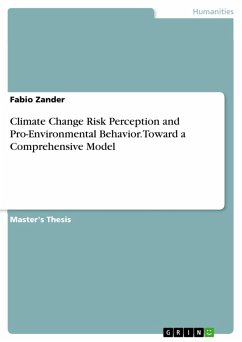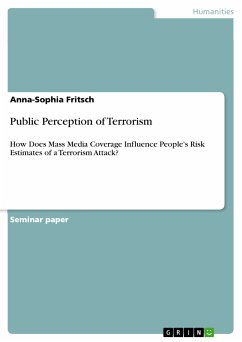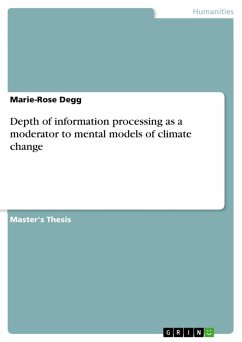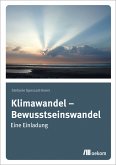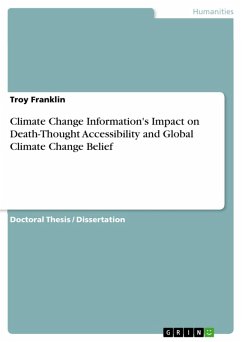Master's Thesis from the year 2018 in the subject Psychology - Miscellaneous, grade: 1,0, Lund University (Department of Psychology), language: English, abstract: Climate change has become one of the greatest concerns of the 21st century as its ramifications pose a major risk to all life on earth. However, not all individuals are aware of this risk and behavioral engagement to counteract the issue is often still lacking. This research examined the relationship between climate change risk perception and pro-environmental behavior. The aim of this cross-sectional study was twofold. First, studying specific pro-environmental behavior and second, using a methodological approach that addresses the measurement inconsistencies in the literature on how to define and operationalize climate change risk perception. The sample consisted of 141 young educated adults (M = 25.67, SD = 2.93) who responded to an online questionnaire. Results showed that climate change risk perception significantly predicted pro-environmental behavior. Comparing personal worry and general concern as two distinct indicators of climate change risk perception indicated that personal worry was stronger correlated to pro-environmental behavior. This relationship was found to be partially mediated by pro-environmental behavioral intentions. Results of a multiple hierarchical regression showed that including personal worry as an additional predictor variable did not significantly increase the explained variance in pro-environmental behavior, after having controlled for variables from the theory of planned behavior (attitude, subjective norms, perceived behavioral control) and the norm-activation model (personal norms). The findings extend the current literature and contribute to a further understanding of why and how humans behave pro-environmentally. Future researchers are encouraged to study the individual drivers of climate change more closely.
Dieser Download kann aus rechtlichen Gründen nur mit Rechnungsadresse in A, B, BG, CY, CZ, D, DK, EW, E, FIN, F, GR, HR, H, IRL, I, LT, L, LR, M, NL, PL, P, R, S, SLO, SK ausgeliefert werden.

